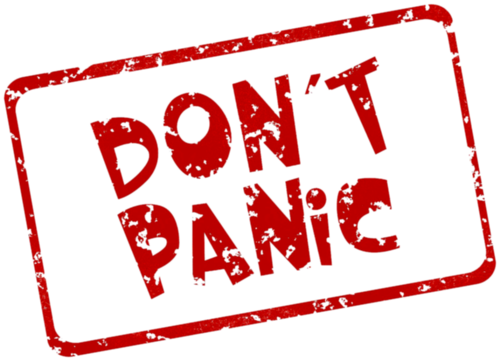Anxiety
 Anxiety is a common presentation in clinical practice, affecting male and female, young and old. For many, anxiety can be very severe and have a debilitating effect on patients’ quality of life. We all get anxious at times and for several people anxiety is just a fleeing emotion, but for those taking exams or under pressure or engaging in stressful life-events anxiety is much more. In the last few years we are finding more young children presenting with anxiety often this can be related to bullying at school.
Anxiety is a common presentation in clinical practice, affecting male and female, young and old. For many, anxiety can be very severe and have a debilitating effect on patients’ quality of life. We all get anxious at times and for several people anxiety is just a fleeing emotion, but for those taking exams or under pressure or engaging in stressful life-events anxiety is much more. In the last few years we are finding more young children presenting with anxiety often this can be related to bullying at school.
Anxiety is characterized by extreme fear. Fear can lead to avoidance of everyday activities. It also includes physical symptomatology such as racing heartbeat, rapid breathing, abdominal nausea, extensive worry, fitful and disturbed sleep, profuse sweating, severe muscle tension, negative thought patterns and a fear of losing control.
Your first port of call should be your General Practitioner who will determine if there is a medical reason for the symptoms. An astute GP will refer you to a psychologist. The psychologist will teach you skills to enable you to play a proactive role in your own recovery and to counteract the symptoms. Everyday usage of relaxation techniques is also helpful in the management of anxiety.
What is anxiety?
Anxiety is a feeling of unease or discomfort. Anxiety that is left untreated for a long period of time can affect both your physical and mental health. It is important to try and figure out what may be triggering your anxiety. Sometimes anxiety may result from exposure to a specific task or place or situation. You must not allow anxiety to interfere with your daily living.
Some patients say there is no apparent cause for their anxiety. Major life events such as a bereavement, relationship break-up, history of addiction, unemployment, people with a family history of anxiety are more vulnerable than most. This is what we refer to as ‘learned helplessness’. We see those close to us avoiding things due to anxiety.
The worst thing to do is to avoid situations that make you anxious. This does not take your anxiety away. It is important to ‘feel the fear’ and expose yourself to it by confronting the fear. You can learn to cope with it a lot better than you think and in turn enhance your overall quality of life. Patients often say they wish they had come for help sooner. Pacing and goal setting are important concepts in the treatment of anxiety.
It is important to take a graduated approach to exposure to your fears. If you set the goals too high you will be disappointed. This disappointment can often cause patients to give up more readily and increase the number of crisis points. Here at the clinic we do not just talk to our patients during their appointments they can contact us either through mobile or email contact, if they reach a stumbling block between their appointments.
Causes
Some patients say there is no apparent cause for their anxiety. Major life events such as a bereavement, relationship break-up, history of addiction, unemployment, people with a family history of anxiety are more vulnerable than most.
Feel the Fear
The worst thing to do is to avoid situations that make you anxious. This does not take your anxiety away. It is important to ‘feel the fear’ and expose yourself to it by facing the fear, you can learn to cope with it a lot better than you think and in turn enhance your overall quality of life.
The Different Types of Anxiety Disorder
The various types of anxiety disorders have many symptoms in common. GP’s usually categorise anxiety into.
- Generalised anxiety disorder
- Anxiety depression disorder
- Post traumatic stress disorder
- Obsessive compulsive disorder
- Panic attacks
- Social phobia
- Phobia disorder
Generalised Anxiety Disorder
GAD or Generalised Anxiety Disorder is the most common form of anxiety for those who present with anxiety at IrishPsychology.com (approximately 25%). GAD doesn’t usually have any specific trigger. It is often described as ‘free float’. The most common symptoms are headaches, sweating, nausea, palpitations, abdominal discomfort, persistent nervosa, trembling and feeling light headed.
Mixed Anxiety Depression Disorder
This is when a patient has symptoms of both depression and anxiety. It is often difficult to determine whether the depression leads to anxiety or anxiety leading to depression. However, both sets of symptoms need to be treated. Opening up to a psychologist or health professional will help alleviate symptoms. Sometimes it may also be necessary to take medication and we are happy to work with either your GP or psychiatrist in this regard. A multi-disciplinary approach is what is often needed.
Post Traumatic Stress Disorder
Post Traumatic Stress Disorder or PTSD usually occurs after a traumatic or horrifying experience. You may have lost a close member of a family, been in a car accident or work related accident or perhaps witnessed a difficult event. Patients who have PTSD often relive the event through flashbacks, nightmares and frightening dreams. They experience strong associative memories of the place where the incident occurred and often try to avoid this place. Patients need to realise that it is most natural to be upset after any traumatic events.
Group therapy once a patient has dealt with the trauma on an individual basis can be very helpful to help overcome isolation and in some cases deal with “survival guilt.” PTSD workshops are regularly run at IrishPsychology.com. Patients find comfort in realising that to others think and feel the same emotions. Some patients with PTSD (post traumatic stress disorder) often have to deal with medico-legal claims and this can be difficult or unknown territory for many people. Here in IrishPsychology.com we have a lot of experience in helping patients through this process. We also work with chronic pain resulting from such traumas.
Obsessive Compulsive Disorder
Obsessive Compulsive Disorder or OCD is when a person engages in obsessional thoughts or compulsive acts on a regular basis. This can be very distressing and the patient uses a huge amount of energy trying to block out such distressing thoughts and behaviours. Often the behaviour patterns are ritualistic and are repeated continuously with no evidence to support the need to do these acts without any definitive purpose. The person is consumed with fear that something will happen if they do not do these things. When they stop doing the acts often the anxiety increases. Cognitive Behavioural Therapy or CBT is very effective for treating OCD. We also encourage patients to use mindfulness techniques, which helps increase awareness as to how the OCD is impacting on the patient’s body.
Panic Attacks
Many patients present with anxiety attacks. These include sudden palpitations, chest pain and dizziness. Many patients end up in Accident & Emergency as they often believe that they are having a heart attack. Panic attacks often lead people to believe that they are losing control. Once a patient recognizes that they can control their attacks they regain their confidence
Social Phobia
Social Phobia is also known as Social Anxiety Disorder. This is when people feel very awkward and uncomfortable in social situations. Symptoms vary from tremors, blushing, nausea and sometimes a full blown panic attack will occur. It is important to build on your self-esteem in order to tackle this problem. Start with easy social interactions and gradually build up to greater ones once your confidence increases.
Phobic Disorder
Includes an irrational fear of an object, activity or situation e.g. fear of heights (Acrophobia), fear of open spaces (Agoraphobia), fear of flying (Pteromerhanophobia). Such patients have a reduced quality of life and often their activities are extremely limited. They regularly avoid social situations.
What you can do?
- Talk to a health professional
Your GP is your first port of call. Remember ‘a problem shared is a problem halved’. Your GP can refer you to a psychologist or counsellor and you can begin to deal with your problem more effectively and not feel so powerless. Through talking therapy you will learn to play a more proactive role in your own recovery.
- Relaxation
Learning to relax goes a long way to help deal with relaxation. Deep breathing slowing down will help to manage your anxiety symptoms and also help with sleep difficulties.
- Structure your day.
Set yourself realistic goals. Remember to pencil in free time. By challenging yourself to a daily routine you will be in a good position to fight your anxiety. Good time management is really important.
- Education.
Educate yourself about the type of anxiety you have. Ask your health professional to recommend a good book or website.
- Engage is positive thinking.
A positive mental attitude will help solve your anxiety. Have confidence in your ability to cope and remember negative thoughts can be replaced with positive ones. Remember ‘it’s only a thought and a thought can disappear’. CBT Cognitive behavioural therapy will offer you many skills to help positivity.
- Take exercise.
Regular exercise can help the body to produce those happy chemicals (endorphins), which will improve your mood. Being fit will also enhance your self-confidence.
- Limit your food and alcohol consumption.
Try to avoid overeating and eat a well-balanced diet. Excess alcohol and caffeine can increase your anxiety levels and often lead to addiction. Excess alcohol and caffeine can increase your anxiety levels and often lead to addiction. Remember ‘we are what we eat’.
Copyright Dr. Gillian Moore Groarke © 2014
